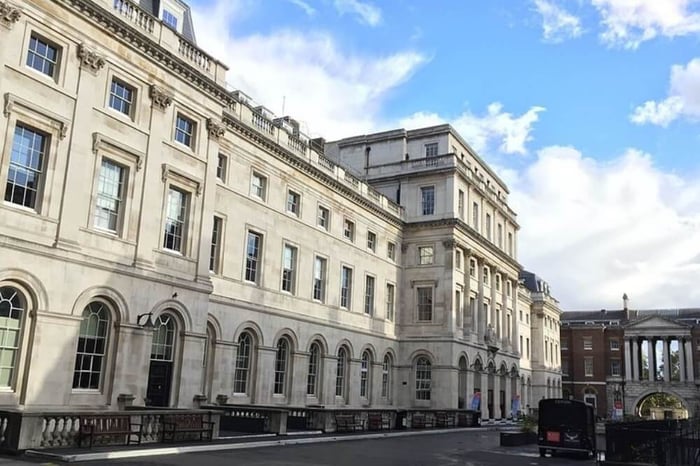
Cambridge Medicine Interview Preparation
The University of Cambridge dates back to 1209 and has grown since to be composed of 31 constituent colleges. Medical teaching at Cambridge dates back to 1540, but it wasn't until 1829 that the curriculum was established.
The study of medicine grew significantly during the 1900s, following the founding of the NHS and the building of Addenbrooke's hospital, a world-leading hospital and the location of the University of Cambridge Clinical School. Cambridge is a world-leading institution, particularly in medicine, and thus it is of paramount importance that you know what to expect.
1. ABOUT YOUR CAMBRIDGE MEDICINE INTERVIEW
An Oxbridge interview can be quite different compared to other medical schools. Beyond the initial style, the interview questions vary from college to college and are perhaps less focused on personal qualities and more on your level of understanding currently.
Most are very traditional, with multiple panel interviews focusing on key aspects of the application: personal statement and core scientific knowledge. They will ask you to utilise your school teaching so far and apply it to clinical scenarios. An example could be, 'why does heart rate increase when you exercise?', and you are expected to explain the mechanisms behind this, showing your thought process. They may even ask you to draw something.
Don't worry too much about the philosophical questions that supposedly get asked at so many Oxford and Cambridge interviews. The main aim of the Cambridge medicine interview is to find out about what you know already and how adaptable you will be at developing this. The things your interviewer will be looking for include:
- Communication and teamwork
- Good scientific knowledge
- A willingness to learn and further your knowledge
- Appreciation of the role of a doctor (what you gained from your work experience)
- The ethical issues raised in medical practice
Make sure you look up specific details for the college you are applying to when invited to interview as the style of their Cambridge medicine interview will vary. The collegiate system is where you will find some of the best teaching is conducted. Colleges may be transparent about how their admissions work although it may be useful to try and contact a student who has been through the process themselves. Try and find out about how medicine is taught at your college specifically.
You may find your college informs you of your interviewer beforehand. It is crucial that you utilise this information. Look up the field of medicine they are involved with, and any research they might have published recently. Who are they? Do they have a role in teaching at medical schools? Are they an admissions tutor? This can help prepare you for some of the possible interview questions that you might get asked.

2. About the course
At both Oxford and Cambridge, the standard course lasts 6 years, with intercalation being compulsory. The first three years are pre-clinical, with lectures, practicals and supervisions being the main teaching methods. The third year is the intercalated year, where you achieve your initial degree. This can be in a subject of choice but is usually one offered within the Natural Sciences Tripos.
Following on from this are the clinical years, based primarily at Addenbrooke's and surrounding regional hospitals and general practices. Knowledge gained in the earlier years is built on and integrated into the teaching of practical skills required by a doctor.
Teaching style
Cambridge offers a traditional course, with around 300 medical students per year. Teaching is delivered through a variety of platforms: lectures, practicals, seminars, clinical experience and supervisions, which are unique to Cambridge. In a supervision, two to three students will be taught by a leading academic, with the chance to ask questions and find out more beyond the scope of the lecture course. Some say the interview itself is like a supervision, so your interviewer is trying to gauge how well you will fit in with the Cambridge style of learning.
CLINICAL WORK
As the course is relatively segregated between pre-clinical and clinical years, the course offers some early clinical experience through the 'Preparing for Patients' module. This has 4 branches, where students meet patients in general practice, a hospital environment and a community-based health organisation (one voluntary, one alternative practice). The fourth component involves shadowing a pregnant woman throughout her pregnancy experience.
After completion of the first degree, students transition to clinical school, where they build on knowledge taught in the first three years. Each clinical year has a particular focus: core clinical practice (4), specialist clinical practice (5) and applied clinical practice (6). These involving rotations at many different hospitals and practices within the Cambridge University Hospitals NHS Foundation Trust.
ANATOMY TEACHING
The majority of anatomy is taught through full body dissection during the first year. This involves up to 4 hours of dissection a week, with 7 students to a body, alongside lectures and supervisions teaching both clinical aspects and embryology. For part of the second year, head and neck anatomy are taught through prosection.
INTERCALATION AND ELECTIVE OPPORTUNITIES
As mentioned before, intercalation is compulsory. It's a good chance to explore a topic you are really interested in, with the possibility of either doing a research project or a dissertation. Consider taking a look at some of the options. Throughout the clinical years, there are a series of four-week student selected components. In these, you can get more experience in a speciality of your choice, or complete a research project. This is supported by an 8-week elective between fifth and sixth year.

3. theMSAG tips to prepare for your interview
SHOW PASSION
Talk about your subject: where your interest arose from; how you've explored it in the past few years and what you plan to do when you study it. For help answering these common questions, take a look at our Online Interview Course. Remember that you will have very little patient experience in your first three years compared to other medical schools. Everyone who has applied will have the academics and personality to be a good doctor so you need to show your interviewer why you will be a good scientist as well.
TELL THEM WHY YOU ARE SPECIAL
The interviewer will have already seen your personal statement and supplementary application questionnaire (SAQ) as part of the application process. Tell them about how you can take your experiences and develop them at University. You'll be expected to have a good answer to 'why Cambridge?', but make sure you also consider what you can contribute to the college. Are there any sports teams or societies you are planning to join?
KNOW YOUR STUFF
LEARN, PRACTICE AND REFLECT
Get your family and friends to ask you questions which are likely to come up. Try explaining things to them that you read in the news or studied as part of your course. If you feel comfortable in your abilities, you will shine through your interview. Consider the interview questions they might ask given the information you have already provided.
4. Interview advice from a current Cambridge University student
"Remember to stay calm. Most colleges offer the chance to stay overnight for your Cambridge medicine interview - a once in a lifetime opportunity - so have fun! During the interview, they want to get to know you as a person and see what you can bring to both the college and University of Cambridge itself. The Cambridge medicine interview is hard, and your interviewer will try and test the limits of your knowledge. Everyone will find they get to a point during their interview where they can't answer any further questions. They want to understand your thought process: how your brain works and the steps you take answering a question, so remember to speak out loud. It is important to not be disheartened if you come out of your interview in tears. This probably means your interviewer pushed you, and it actually went a lot better than you thought."
We hope that you have found these Cambridge medicine interview tips useful! As always, don't hesitate to contact us at [email protected].
--------
Disclaimer: The information used for this blog post has been found on the Cambridge University website. These were accessed in November 2018. Please note that the course structure and interview style is subject to change, and you are advised to confirm before attending.



